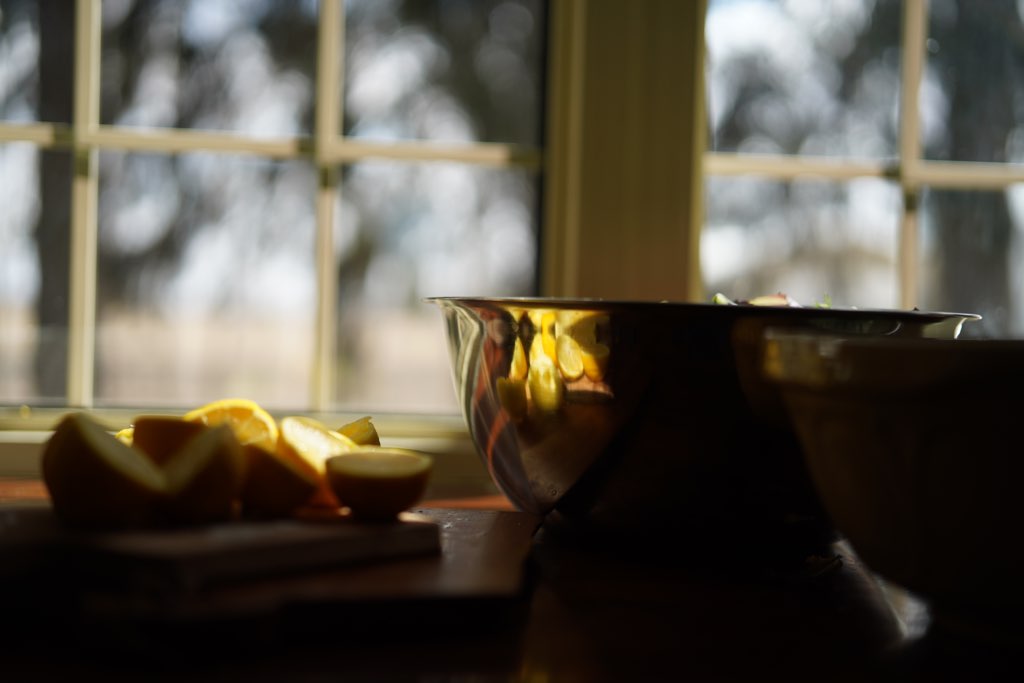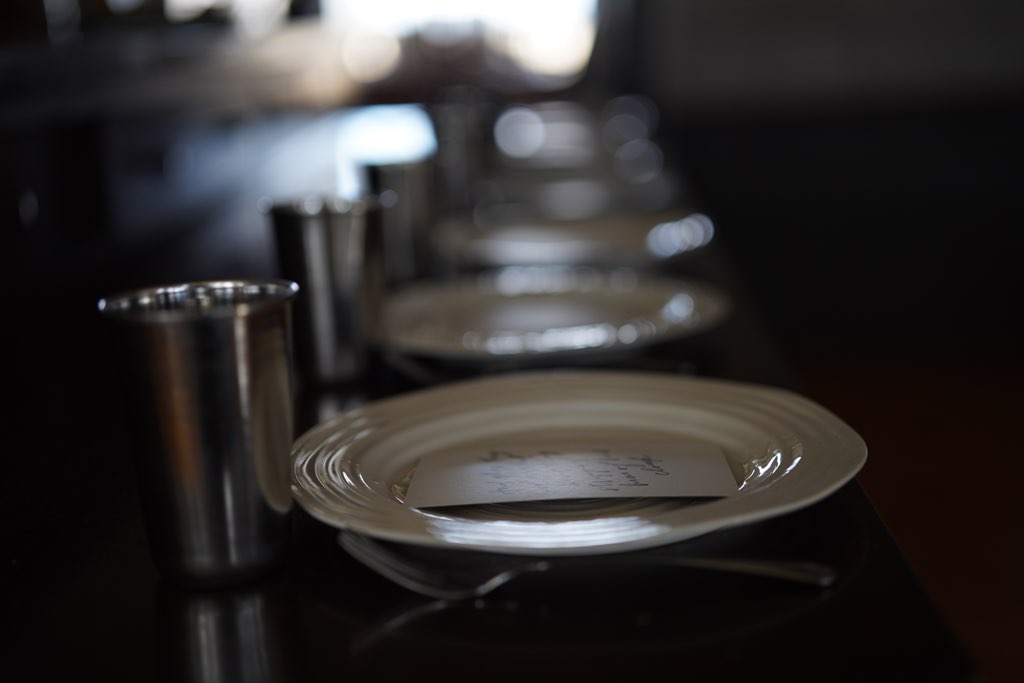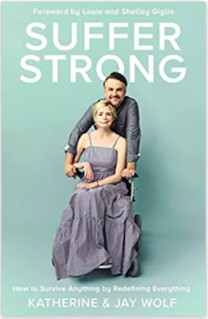After surviving a catastrophic brainstem stroke when she was just 26 years old, Katherine and her husband Jay have dedicated their second-chance life to boldly disrupting the myth that joy can only be found in a pain-free life. As an advocate, speaker, author, and mother navigating the world with both significant disabilities and significant joy, Katherine poignantly embodies what it looks like to fully lean into a good/hard life. She and Jay have paid a precious price for their wisdom and insights, and seek to generously share their experience of a life awakened to its own broken-down but miraculous nature. It’s a grace to welcome Katherine to the farm’s front porch today…
I remember the monogrammed linen sheets we were given for our wedding.
I remember unpacking them when we moved into our married housing dorm at Pepperdine. These feel too nice, I thought. My old T-shirt sheets feel a bit more suited for this season of our lives.
So I took those new sheets and put them on the top shelf of our closet for safekeeping. One day, when we move into a real house, I’ll use those on our bed, I thought expectantly.
Two and a half years later, those sheets would still be lying in the top of the closet, just where I left them, while I was on a stretcher dying.
As the paramedics raced me out of the dorm, our first home, the door would slam shut on that chapter of our lives.
I never saw that place again.
And it would be almost nine months before I slept in something other than a hospital bed.
Jay retrieved those special monogrammed sheets and put them on the bed at our first “real house” near my brain rehab facility. I got to sleep on them, against all odds, but why in the world did I wait?
My wise friend Sarah learned about celebrating “in the midst of” before I did.
I’ll always remember when she called with the news of her dad’s unexpected diagnosis, which hit their tight knit family hard.
But what they did next is something I’d never heard done before. They threw a “tribulation party” in their home that very night.
This impromptu gathering was full of good food and friends, laughs and tears.
And the prayer throughout was thank you. Their gratitude was not for the cancer, of course, but they were thankful to have a God who wouldn’t leave them to face cancer alone.















Sarah’s dad eventually survived his illness and they threw an epic party to commemorate it.
But I guarantee they’ll never forget that first party, thrown in the midst, when they lifted up the God who would never abandon them.
Celebration isn’t so different from worship.
This is where the line starts to blur between party and pulpit.
Our worship should be celebratory, so our celebrations should be worshipful. And they are because we’re all worshiping something—ourselves, our futures, our pasts, the outcomes that give us more of what we think will make us happy.
But worship in its purest form doesn’t happen when everything comes perfectly together; it’s most powerful when everything is falling apart.
Inspired by my friend’s tribulation party, I hosted a group of friends to gather around my table for a “brokenness brunch.”
What was interesting about the guests at my brunch was that we all shared the experience of living in a current season of great pain, but we had very different circumstances.
One friend was on the verge of bankruptcy. Another had four kids, including one with severe disabilities. Another one had a mother with ongoing mental illness, and the last friend was in the middle of a nasty divorce and custody battle.
Wow, this sounds like quite the Instagram-worthy Sunday Funday, cheersing with the picture-perfect besties, right? Not quite.
But it ended up being more satisfying than any surface-y brunchy-poo ever could be, because realizing you’re not the only one in pain lifts some of the weight off your shoulders.
When you look another human in the eyes and see how they’ve found strength in the face of their suffering, it makes you sit up with a little more hope. Just maybe this will happen for you too.
And there’s no greater way to turn a pity party into a praise party than perspective.
As hard as our stuff is, we realize it could be harder. Plus, being spurred to use some of our own prayers to pray for someone else’s hurts is part of the answer to the prayers we’ve been praying for ourselves.
When I think about the healing celebrations that often happen around a table, I can’t help but think of our own table, the same one my friends and I sat around for brunch.
It’s oak and rustic and round, so no one’s at the head and everyone’s equally close to everyone else. It has scratches and permanent reminders of our children’s giftedness at drawing with Sharpies.
To this day, it’s the place where we spend most of our time together as a family. It’s the heart of our home. Ironically, Jay purchased this table after he was told by my swallowing therapist that I would likely never eat food again!
Maybe as some sort of act of defiance against this very real possibility or as an act of defiant celebration in the midst of it, he went out and bought our big beautiful table.
In some ways, it seemed like a painful reminder of a “never gonna happen” future.
But after nearly a year of almost daily swallowing therapy, I was finally given the green light to eat again. There have been few more healing experiences in my life than gathering around that table, eating a feast, and watching my family be nourished and loved.
It symbolized a party that never should have happened but now happens every day.
Jay and I no longer celebrate desired outcomes that may or may not happen in the way we envision.
But we do celebrate because, if we wait, we just might wait until it’s too late to celebrate at all.
Celebration can be an act of worship and an act of hope and perhaps, in a way, an act of joyful rebellion against fear.
It’s about remembering our future.
It’s about believing that even if our plates are empty for a while, we’ll still have a table to place them on until they can be filled again.
At the age of 26, Katherine Wolf suffered a massive brain stem stroke that nearly ended her life. Against all the odds, she survived. Now, Katherine and her husband Jay are advocates, speakers, authors and founders of the non-profit ministry, Hope Heals.
Their new book Suffer Strong: How to Survive Anything by Redefining Everything offers readers hard won lessons and practical insights from their experience of redefining suffering as a privilege rather than a punishment.
I’m telling you, once you read it you will be forever changed.
[ Our humble thanks to Zondervan for their partnership in today’s devotion ]








